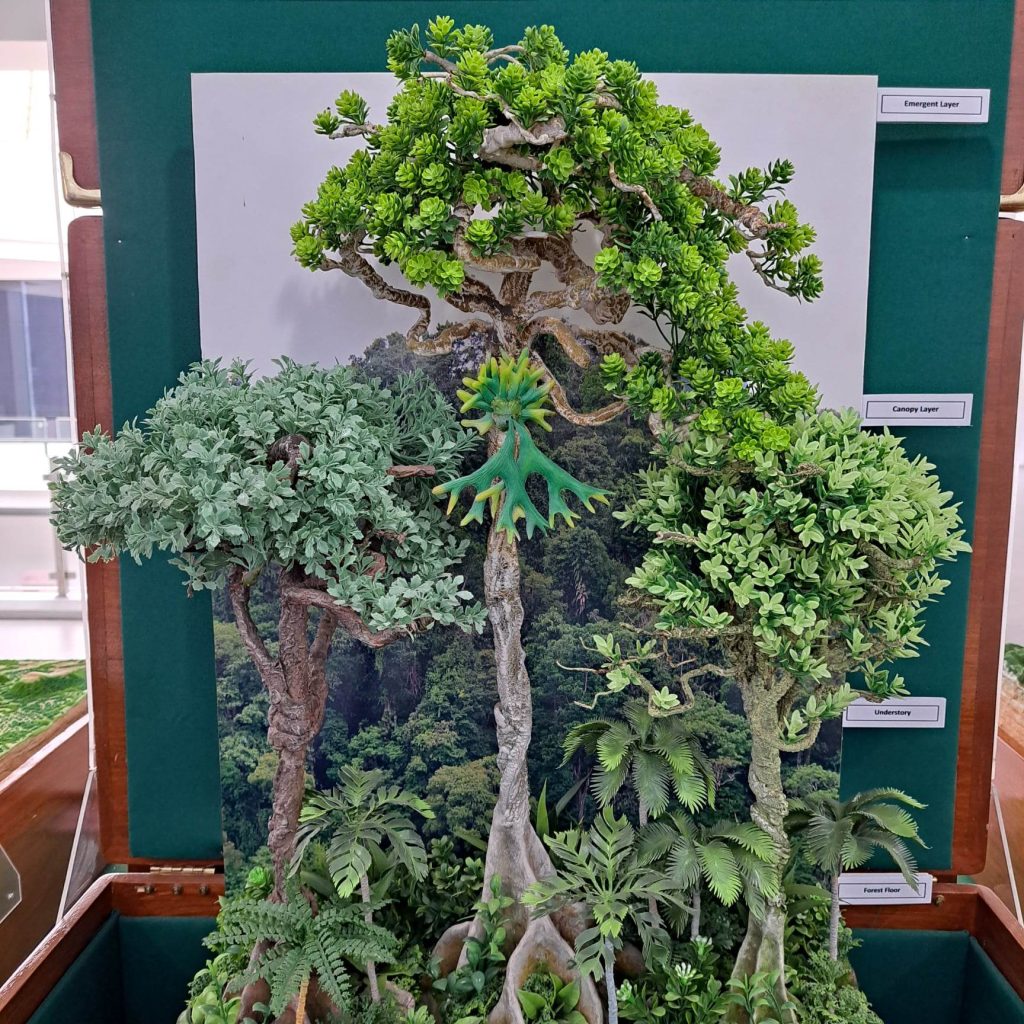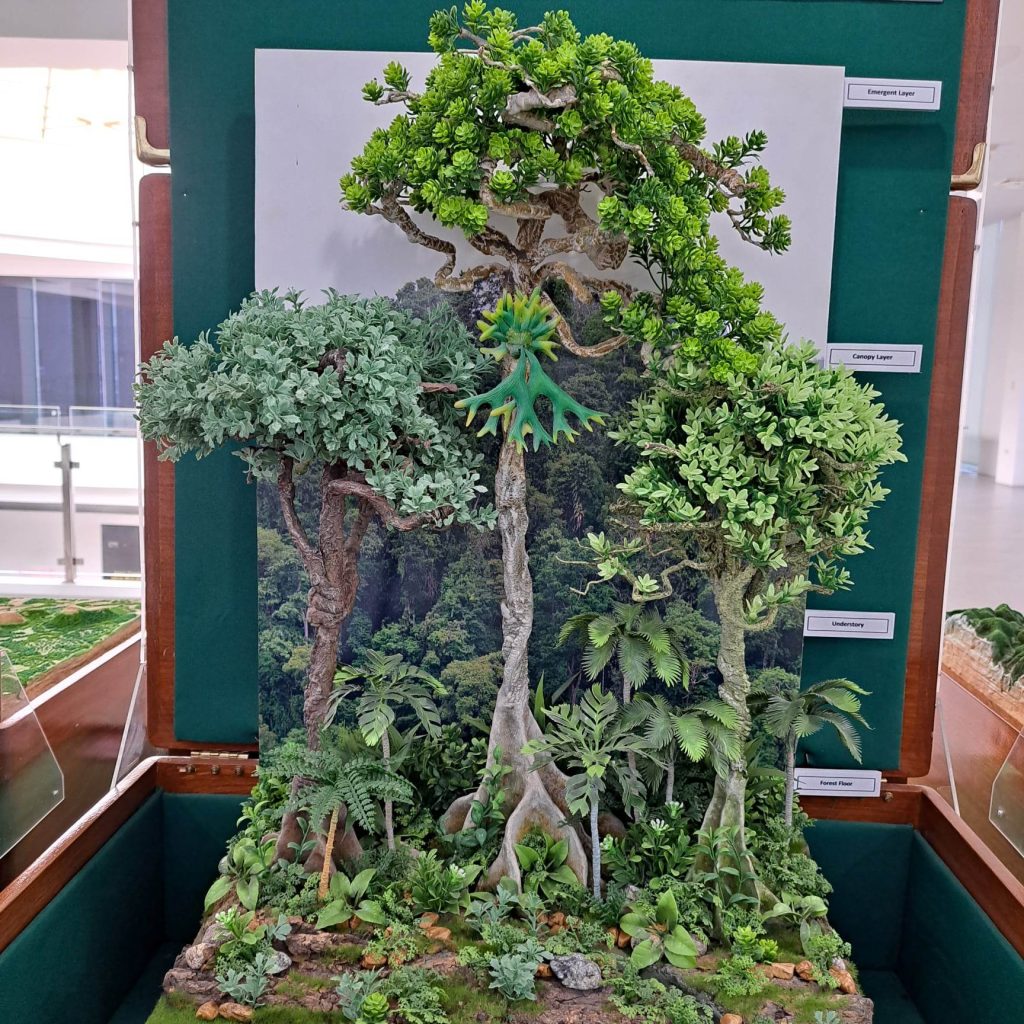Disclaimer: This is not the official press release or communications. The text are taken from the exhibit itself. All credit goes to the National Museum of the Philippines – Western Visayas Regional Museum, International Centre for the Study of the Preservation and for Restoration of Cultural Property (ICCROM), CollAsia Field Projects (Connecting Communities and Collections), and the Cultural Heritage Administration of the Republic of Korea.

Forest Stratification pertains to the vertical arrangement of plants in a forest, divided into several layers, each according to its own distinct characteristics. Together, this creates a complex habitat for species.
The topmost layer of a typical rainforest is the emergent layer, composed of trees reaching 70 to 80 m high. The canopy layer is composed of mature trees that are 10 to 60 m high. Below is the understory, composed of trees that reaches up to 5 to 10 m high and is usually dimly lit as it only receives 2-15% of sunlight. Underneath is the shrub layer, even less light is able to penetrate this layer and is composed of 1 to 5 m short trees. The lowest layer is the forest floor, there are only a few or almost no plants at all that grow here as the sunlight hardly reaches this layer
Pambansang Museo sa Barangay: Bringing Museum Collections to the Fringes
Parts of the Pambansang Museo sa Barangay:
Haból Panay: The Woven Artistry of Western Visayas
Amlig: Biodiversity Conservation in West Visayas Faunal Region
Elephant and Stegodont: The Gentle Giants of Panay
Other helpful exhibits:
Rocks of the Visayan Islands
Shells of the Visayan Region
Rafflesias of the Visayan Islands
Protected Areas of the Visayan Region
The Forest Products
The Kanlaon Volcano
The Chocolate Hills
The Pawikan
**Content was only based on the photos I took during my personal visit. I may have missed significant details.
